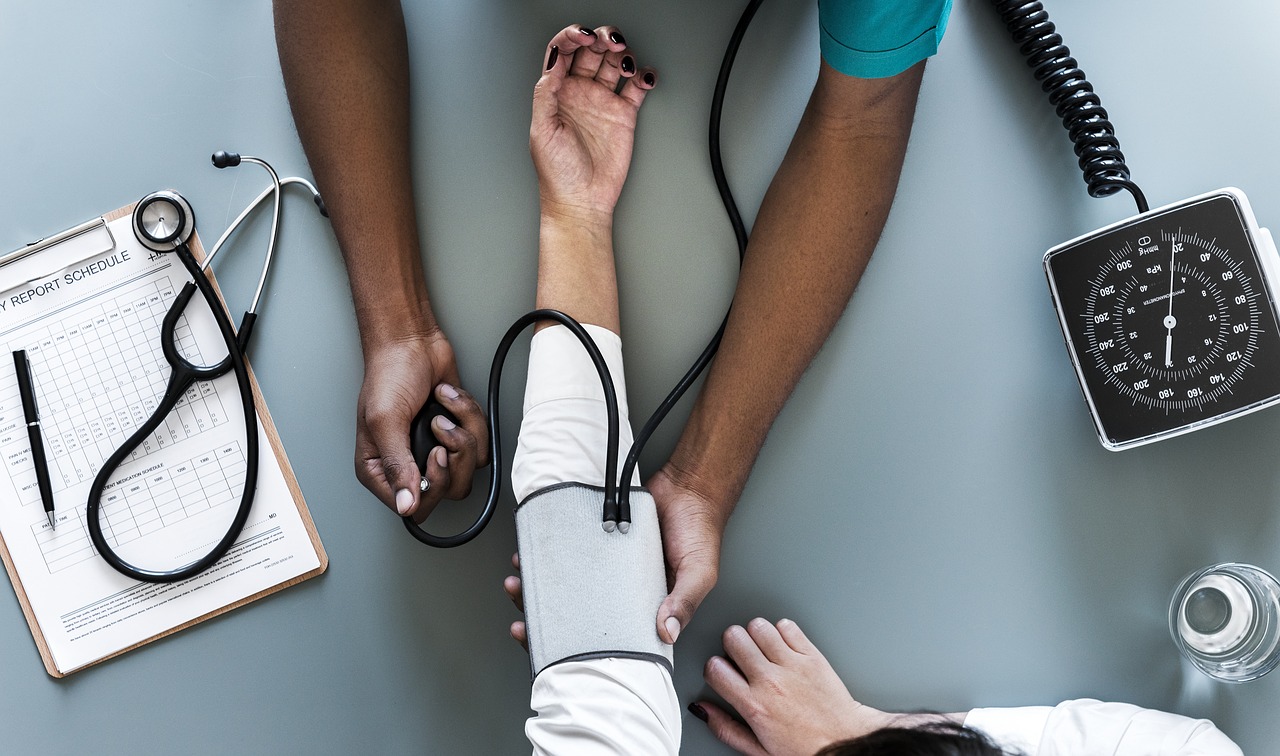
Keshav, 38, is caught in the grind of a demanding job that consumes his weekdays with 12-hour shifts, tight deadlines, and constant pressure. His stressful work environment leaves him perpetually exhausted and struggling to get enough sleep. To cope with the relentless stress, Keshav turns to partying over the weekends, indulging in late nights and heavy drinking as a way to escape his hectic routine and enjoy his financial success.
However, a few days ago, his life took an alarming turn when he was diagnosed with hypertension, with his blood pressure reading at 170/100 mm Hg. The news left Keshav tense and scared, realizing that his health was at serious risk. His doctor suggested lifestyle modifications as the first step towards managing his condition.
Determined to take responsibility for his well-being, Keshav began researching ways to improve his health. He discovered GOQii, a holistic health and wellness platform that offers personalized coaching, fitness tracking, and health insights. Intrigued by its comprehensive approach, he downloaded the GOQii App and explored their website. Through the app, Keshav interacted with a health coach who provided him with tailored advice and strategies to manage his hypertension. This was his first step towards a healthier lifestyle, and he knew he had to make significant changes to combat the impact of his stressful job and sleepless nights.
Blood pressure is the force exerted by the blood against the walls of the blood vessels. The pressure depends on the work being done by the heart and the resistance of the blood vessels. The normal blood pressure is 120 (systolic)/80 (diastolic) mm of mercury (mmHg), but hypertension is higher than 140/90 mmHg. As reading keeps on fluctuating, one must take minimum 3 readings at least 2 hours apart to label chronic hypertension.
- Primary Hypertension could be due to plasma volume and activity of the hormones that regulate blood volume and pressure or environmental factors
- Secondary hypertension has specific causes and is a complication of another problem which could result from diabetes, overactive thyroid gland, Cushing syndrome, which can be caused by corticosteroid drugs, hyperparathyroidism, which affects calcium and phosphorous levels, pregnancy, sleep apnea, Obesity, CKD or kidney disease or pheochromocytoma, a rare cancer of the adrenal gland.
The Following Could Lead to Hypertension:
- Stress
- Cardiovascular disease, diabetes, chronic kidney disease, and high cholesterol levels
- Alcohol and tobacco use is the cause of many health problems, not just hypertension
- Hypertension is more common in people aged over 60 years even though many young people also have this disease
- Being overweight or obese is a key risk factor
- Men are prone to hypertension at a younger age and it is higher in older women. This might be due to men holding on to emotions and women tackling their stress better
- Physical Inactivity is the key to be unhealthy! Move it, please! Manage your health with exercise!
- If you take salt-rich diet associated with processed and fatty foods, low potassium in the diet, you are at risk
- A family history of high blood pressure and poorly managed stress can also contribute. But you can create your own destiny! Manage your diet, exercise and tackle your stress!
If you are in any of the above categories, I will be worried!
Your Daily Routine Should Be:
- When you open your eyes in the morning, be happy, grateful and chill!
- Say no to junk, and yes to raw veggies and fruits. Have a healthy breakfast, lunch and dinner. Your small snacks should consist of fruits, healthy snacks. Say no to junk!
- Avoid extra salts – The WHO recommends reducing intake to under 5g a day to help decrease the risk of hypertension and related health problems.
- Exercise regularly. At least 45 minutes every day. Dinner should be 4 hours prior to your sleep
- STOP alcohol and smoking
- Manage your body weight
- Pranayama is the key to manage stress. Yoga is amazing! Try it!
Even if you are fit, please keep in mind that if undetected, it can cause damage to other organs as well. Hence, have your blood pressure checkup regularly. Long-term hypertension can cause atherosclerosis. This formation of plaque results in the narrowing of blood vessels making it hard for the heart to pump blood!
Hypertension-Related Atherosclerosis Can Lead To:
- Heart failure/Heart attacks
- An aneurysm or an abnormal bulge in the wall of an artery that can burst, causing severe bleeding and in some cases, death
- Kidney failure or Stroke
- Hypertensive Retinopathies in the eye, which can lead to blindness
The best way to deal with hypertension is to be mentally and physically healthy. Be stress free, happy and take care of your physical body. This will help your overall fitness and not just hypertension.
We hope this article helps you. For further information or guidance, reach out to our certified experts by subscribing to GOQii’s Personalised Health Coaching here.
#BeTheForce
Please ensure that the medication is taken as per the advice of your doctor and remember that lifestyle modification is the key!




I am a high BP patient, I am trying to leave tobacco but failed for doing that, what should I have to leave tobacco?